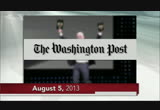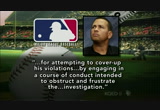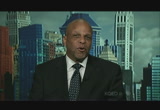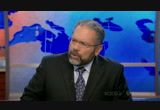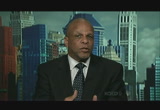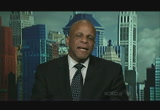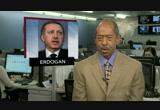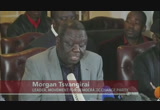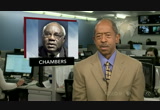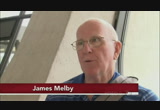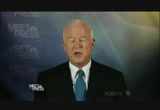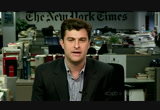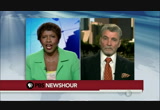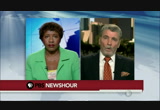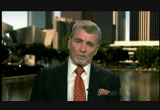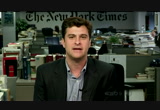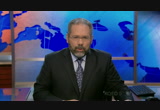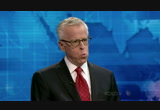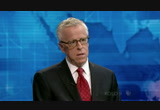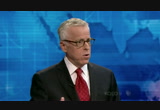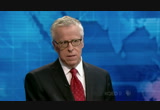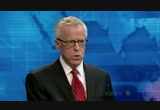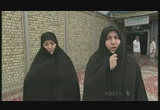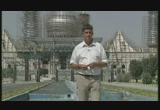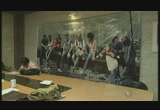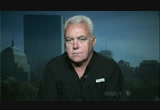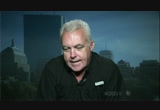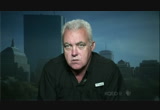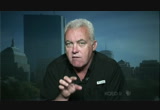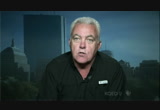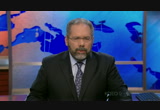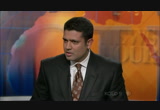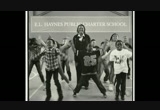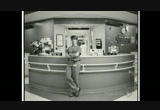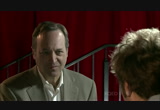tv PBS News Hour PBS August 5, 2013 3:00pm-4:01pm PDT
3:00 pm
captioning sponsored by macneil/lehrer productions >> ifill: major league baseball hit yankees all-star alex rodriguez with a 211-game suspension for doping. good evening. i'm gwen ifill. >> suarez: i'm ray suarez. on the newshour tonight, 12 other players caught a 50-game ban. we get the latest on the biggest single-day bust for performing- enhancing drug use in baseball history. >> ifill: then, a score of diplomatic posts across the mideast and africa remain shuttered today in the wake of an al-qaeda threat. we assess the warning and what it means for americans traveling abroad. >> suarez: one of the nation's landmark newspapers was sold to the founder of an online giant. we discuss amazon's jeff bezos' bid for the "washington post." >> ifill: iran swore in a new president today. ahmadinejad is out, hassan rouhani is in. we dissect what the change means
3:01 pm
for the country. >> suarez: the rollicking trial of alleged boston mob boss "whitey" bulger approached its end today. margaret warner looks at closing arguments in the trial of the man prosecutors call "one of the most vicious, violent, and calculating criminals" to walk the city's streets. >> ifill: mandolin virtuoso chris thile has delighted fans by blurring genres. jeffrey brown talks with the mcarthur genius grant winner about his latest move from bluegrass to bach. >> when you talk about bach, you're talking about the greatest musician who ever lived. we've so far removed from someone being in a situation where they could dance to bach. >> ifill: that's all ahead on tonight's newshour. >> major funding for the pbs newshour has been provided by:
3:02 pm
>> bnsf railway. >> and by the alfred p. sloan foundation. supporting science, technology, and improved economic performance and financial literacy in the 21st century. >> and with the ongoing support of these institutions and foundations. and... >> this program was made possible by the corporation for public broadcasting. and by contributions to your pbs station from viewers like you. thank you. >> suarez: major league baseball ejected a bevy of big names today in a doping scandal. the a-list of players was led by the man known as "a-rod," and his punishment topped them all: the rest of this season and all of next. he planned to appeal. for weeks the question had not been whether but how long alex rodriguez would be suspended. today baseball's highest-paid player found out. it's the toughest penalty since
3:03 pm
pete rose was banned for life in 1989 for gambling on baseball. in 2009, rodriguez, widely known as a-rod, admitted to using performance-enhancing drugs in the early 2000's. >> i screwed up big time, but i think the only thing i ask from this group today and the american people is to judge me from this day forward. that's all i can ask for. >> suarez: but major league baseball said today rodriguez continued to use and lied about it. he's part of a group that allegedly procured drugs from a company called biogenesis in miami. in a statement, major league baseball said rodriguez's suspension was based on his use and possession of numerous forms of prohibited performance-enhancing substances and for attempting to cover up his violations by engaging in a course of conduct intended to obstruct and frustrate the investigation. selig had already banned ryan brawn of the milwaukee brewers,
3:04 pm
the national league's most valuable player in 2011, for the rest of this year. today he also handed out 12 other suspensions of 50 games each, essentially the remainder of the regular season. among the marquis names on that list: texas rangers outfielder nelson cruz and detroit tigers' shortstop johnny peralta. but road reeg ez, a three-time m.v.p. has eclipsed all the others and joins barry bonds, roger clemens, mark maguire and a host of others as fallen icons of the game. the 14-time all tar had off-season surgery but as fate would have it, he's ready to return to big league play tonight in chicago. he addressed the matter friday night after hitting a towering home run in minor league tune-up games. >> i think there's a lot of people that are confused and don't understand the process. there is a lot of layers. i will say this. there's more than one party that benefits from me not ever
3:05 pm
stepping back on the field. that's not my teammates. it's not the yankee fans. >> who is it? who benefits? >> i can't tell you. i can't tell you that right now. i hope i never have to. >> suarez: that clearly was a reference to major league baseball and the yankees. the team reportedly has considered trying to void the $100 million-plus left on rodriguez's ten-year $275 million contract. as to whether he would rejoin the yankees? >> unless i get hit by lightning. these days you never know. >> suarez: for now his appeal of today's suspension means a-rod gets to play and be paid his $173,000 a game while the case goes to arbitration. to help walk us around the bases of these penalties, i'm joined by christine brennan, sports columnist for "u.s.a. today" and a commentator for abc news. and by william rhoden, a sports columnist at the "new york times."
3:06 pm
let me start with you. 13 men heading for the showers today, but along with alex rodriguez, some pretty good players, no? let's look at the rest of the list a little bit. who stands out for you? >> well, yeah, i mean you have perrality a, bartolo colon. these are all people who were going to figure in mightily in their team's pennant race. make no mistake, the guy that they wanted, the big fish is rodriguez. i'm happy to see that he's going to fight it. everybody else gets 50 games. this guy gets almost four times as many games. he's going to fight it. he should fight it. i mean, i hope he fights it, the players' association fights it. i hope they take it to federal court if the arbitrator doesn't make the correct ruling. i just think that it's really not fair in fair in terms of the
3:07 pm
process. >> suarez: why do you hope he fights it? >> well, because of the due process. you can't... too often in this whole process there's been too much of a selection process. you know, barry bonds, you know, we don't like barry bonds so there's the added venom that goes into the pursuit of barry bonds. not able baseball but the federal government. we don't like alex rodriguez. what baseball has a way doing is whipping up or exploiting the fans' distaste for a particular player and then using that as sort of a cover to do things like this. like we're going to give everybody else 50. we're going to give you 211. >> christine brennan, the other 12 are taking their medicine for taking their medicine. what about alex rodriguez? what do you think of what william rhoden just said. >> bill is a good friend but i could not disagree more. this is a lifetime achievement award for a-rod. yes it is four times more. bill is right about that. but i think a-rod is worth four
3:08 pm
times more. let's look at the record here. he has admitted that he took steroids from 2001 to 2003. was never of course punished for that because baseball had not yet started its drug testing. there's number one. number two according to major league baseball and we know a-rod was trying to work a deal. m.l.b. has to have something right. i think they have probably everything right. just a second, bill. m.l.b., they were trying to have a, you know, this deal with a-rod. m.l.b. says he obstructed the investigation. that is a very big deal. and, of course, a-rod, if he was a biogenesis boy to the max and using this stuff for several years, my goodness, is baseball going to get serious or not? are they going to send a message not just around the league but to kids that their role models are going to be caught? this is a major watershed for major league baseball. i think it's terrific what they're doing and i think a-rod deserves the brunt of all of this. >> bill rhoden, go ahead.
3:09 pm
you know i love you, christine. this is not about lifetime achievement. this is not a lifetime achievement award. this is about this specific penalty. this is about this specific incident. it's not about everything else. you know, you go back to that list, about four or five years ago there were 99 people on a list, supposedly people who flunkedded the test. the only name, the only name that came out was a-rod's. so, you know, what we're talking about cheering there are a lot of people who are going to work or on rosters who are probably on that list. people who were using, who we never know. tonight guess who is pitching? ironically andy pettitte who used. roger clemons is working in... i think he's with the astros. mark maguire is a hitting coach. i just don't like this piecemeal approach. if they've got the evidence, i want us... let's go... let's follow the truth where it leads, christine, because if you notice, there have been no executives named so far. the only people who have been whipped up on players. you mean to tell me that there
3:10 pm
were no executives that knew about all this when the turnstiles were whirring? i think there were commissioners who knew about this. i think if we're going to get to the bottom of this, let's not just punish these days and say the wicked witch is is dead. let's follow the truth where it leads and find out everybody, who knew what when. i don't think major league baseball wants to do that because the implications will lead to some very high places. >> i don't disagree with bill on that at all, ray. as you know, i have been incredibly critical of major league baseball. the olympic started drug testing in 1972. major league baseball started in 2004. they're 32 years behind the olympics. one of the reasons is because they love the home runs flying out of the ballpark, brought fans back after the strike. in the '90s. there are a lot of issues here. i think, bill, what you and i are disagreeing on and understandably so is the issue of a-rod himself. i think it's a new world order.
3:11 pm
if a-rod does become the poster child for this, so be it. but i think the rules of the game going forward are different. i'm guessing major league baseball will end up with a punishment policy very similar to the olympics and it should. two years for the first offense. lifetime ban for the second. a-rod may be the beginning point here of this new policy, and i have no trouble with that. >> suarez: there's one critical difference between alex rodriguez and some of the other players on that list: cruz, peralta, cabrera. he's 38. if he loses this arbitration bill, is that pretty much it? >> it is. i'm sure that has a lot to do with the appeal. his career is basically done. if this goes... if this suspension holds. but again, you know, getting back to christine's point, yeah, i do agree with you, christine. this is the new world order. i do like the idea that now, just like with gambling, going forward everybody knows the
3:12 pm
rules. it's concrete. as soon as you go in the locker room, there will be rules. but don't beat up on somebody to make a point. this is about justice. if it's 50, then it's 50. you're not going to fault this guy 200 extra times because of a lifetime achievement because of what you did three years ago when the rules were ambiguous. i don't like that. i think that every media person, every journalist... for get whether you like the guy or not. there's been too much of that. let's follow the truth where it leads. let's deal with justice. >> suarez: let me get a quick response on bill's point about equal penalty and facing equally harsh justice for this infraction. >> it seems to me from everything we've heard all the reporting from major league baseball and what they've got is that a-rod was by far the worst offender. he was obviously impeding the investigation according to major league baseball. and if that's the case, then he deserves a worse penalty. i have absolutely no problem with this. you've got to start teaching
3:13 pm
players lessons, ray. and what the bottom line is baseball going to be tough on this or not? this is absolutely baseball's chance and bud selig's chance to say enough is enough after all the years of cheating. >> suarez: thank you both. thank you, ray. >> ifill: still to come on the newshour, the widespread al qaeda terror threat; inauguration day in iran; the "whitey" bulger mob trial reaches its end; and chris thile on bluegrass and bach. but first, with the other news of the day, here's kwame holman. >> holman: turkey's former military chief and scores of others were convicted today of trying to overthrow the government. retired general ilker basbug was among some 250 defendants in a trial that lasted five years. they allegedly plotted to oust prime minister recep tayyip erdogan. outside the court today, police fired tear gas at protesters against the islamist-leaning government. and the main pro-secular
3:14 pm
opposition party condemned the verdicts. the u.s. has joined efforts to mediate a political solution in egypt. deputy secretary of state william burns met today in cairo with a jailed senior leader of the muslim brotherhood. he met with leaders of the military-backed government over the weekend. meanwhile, supporters of ousted president mohammed morsi continued their sit-ins, defying warnings to leave. in zimbabwe, longtime leader robert mugabe has secured another five-year term as president in another disputed election. his supporters cheered and danced in the streets over the weekend as officials announced mugabe captured 61% of the vote. the election was a week ago. the main challenger, morgan tsvangirai, called the results a "massive fraud." e fraudulent election has blinded zimbabwe into a constitutional, political and economic crisis. the people of zimbabwe should be allowed a fresh opportunity to
3:15 pm
freely, fairly elect their government of their choice. in this regard, a credible, free and a fair, legitimate election must be held as soon as possible. >> holman: the african union endorsed the results, but other observers said one million people may have been barred from voting. it was a quiet day of trading on wall street. the dow jones industrial average lost 46 points to close at 15,612. the nasdaq rose three points to close at nearly 3693. a leading lawyer in the civil rights movement was being mourned today. julius chambers died friday in charlotte, north carolina. he won eight cases before the u.s. supreme court, including a 1971 decision that forced cross- town busing to desegregate public schools in charlotte. julius chambers was 76 years old. those are some of the day's major stories. now, back to gwen. >> ifill: there was new information about the closure of embassies and consulates in the
3:16 pm
muslim world. according to a number of news organizations the united states intercepted communications between the leader of al qaeda and the terrorist branch of that organization based in yemen. according to these reports, zawahri asked his colleagues to carry out an attack as early as yesterday. american embassies and consulates in 19 cities around the world remained shut today as diplomats and travelers alike grappled with the fallout from the closings which were announced this past friday. as travelers checked in for international flights over the weekend, many had more on their minds than the trips ahead. >> we're not really scared. i mean, whatever happens. happens. but we have family over in egypt. they told us everything is okay. >> if i was going to the middle east, yeah, i'd cancel mile flight. i would not go anywhere, north africa, middle east. i wouldn't do it. >> ifill: in addition to the travel warning, u.s. embassies in kabul and baghdad were closed over the weekend but were given
3:17 pm
the go-ahead to reopen today. but nearly a score of american diplomatic facilities across the muslim world will stay shuttered all week through next saturday, including in four african cities. officials cited an abundance of caution rather than a new threat. >> as we all know, one of our top priorities is protecting people on the ground. so going forward, we will continue to make decisions about when embassies will be open or not. as you know, this doesn't happen that often that we close a large number of embassies. so again our preference is not to have to do so but security is our top priority. >> ifill: the top republican on the senate intelligence committee, saxby chambliss said yesterday it's the most serious threat in al qaeda he's seen in years. >> there's been an awful lot of chatter out there. chatter means conversation among terrorists about the planning that's going on. very reminiscent of what we saw pre-9/11. we didn't take heed on 9/11.
3:18 pm
in the way that we should. here i think it's very important that we do take the right kind of planning as we come to the close of ramadan. >> ifill: the intercepted chatter made headlines worldwide and britain, germany and france closed their embassies in yemen through today. across the u.s., there was stepped-up security at the nation's airports and train stations. to assess the threat and the to assess the threat and the reaction to it, we turn to brian jenkins, a security consultant at the rand corporation. and "new york times" intelligence reporter mark mazzetti, who is covering the story. mark, you reported today about these intercepted commune indications. what do we know about them besides what i just reported? >> not a whole lot. we're learning about some communications that zawari the head of al qaeda who took over after bin laden had with the arabian peninsula leader. there was a direct or implicit order to carry out an attack as
3:19 pm
early as yesterday. sunday. and that's about the extent of what we know of these communications. it is very interesting, i think, that zawari has this continued ongoing relationship with waheshi especially because zawari has been portrayed as this out of touch person deep in hiding who can't handle a global terrorist organization. it does at least appear that he does have some degree of influence over al qaeda in the arabian peninsula which has been described as the most powerful and deadly affiliate that al qaeda has. >> ifill: i want to stay with you for a moment, mark, because they made a big decision to close all of these embassies and consulates put out this travel alert. yet when your organization and others got wind of this, the white house or the government tried to warn you against reporting it, you did for a moment and then you didn't. why not? why did you in the end? >> as reported in our story
3:20 pm
today that there was... the story got out in other places. the actual specifics of the communications got out. we went ahead and reported it. i think there was a feeling i wasn't involved in these discussions last week, but i think there was a concern about revealing the fact that these specific intercepts had happened. and so that was the government's case withhold those details. as you said, the closures had been incredibly broad. i think they indicate that while there may be some specific information about maybe the timing of the attack, it is very imprecise about where. that's why they're really closing embassies and consulates all over the place. >> brian jenkins, precisely because of that kind of imprecision how unusual is it to make such a blanket closure, a blanket alert as we saw here? >> well, it is difficult to think of a precedent for a
3:21 pm
closure, diplomatic facilities on this scale. there have been some previous closures. obviously there was one in 2003 that involved our facilities in saudi arabia after a number of terrorist attacks had occurs. they were expecting a continuing campaign in 2002 diplomatic facilities were closed in several southeast asian countries. as a consequence of terror threats. but this is the broadest scale closure that i can remember in response to terrorism. >> ifill: this chatter that mark mazzetti and others are reporting, how significant and how familiar does it sound to you as the reason for these kinds of closures and how significant is it that zawari might be involved in it? >> well, with regard to... it is imprecise. that forces you... if there were really precise information on this, they would be able to thwart the threat or they would
3:22 pm
be able to limit the scope of the disruptive effect that closures like these have. with regard to zawari's position or the broader situation of al qaeda as a whole, i mean, recently, as recently as two years ago, the u.s. officials were saying that we were within reach of strategically defeating al qaeda, that we had pounded the operational capabilities of al qaeda central, that is, the core command led by zawari so thoroughly that they were incapable of carrying out large-scale strategic operatio operations, although al qaeda in a arabian peninsula, the group believed to be responsible for this threat, still represented a serious problem. this suggests that al qaeda, far from being on the ropes,
3:23 pm
represents a continuing very serious threat. there's no question that al qaeda is benefiting from the continuing turmoil across north africa and the middle east. >> ifill: mark ma mazzetti, onef the things we've been paying attention to is the surveillance, that we are keeping an eye not only on domestic recordings, domestic communications but also especially internationally. is this an example of pay-off, pay-out or that kind of, that program, those kinds of international networks we've been mount something. >> well, defenders of the program certainly are pointing that out. you heard a lot of members of congress on sunday talk shows yesterday citing this as an example of the necessity of this surveillance. although it should be pointed out a couple things. first of all, that some critics were saying that the most controversial aspect of this surveillance which is the bulk collection of american cell phone or phone records was not
3:24 pm
the reason why this chatter may have been intercepted. secondly, i think it should be pointed out that, you know, after all of these edward snowden leaks, you heard some officials talking about how the leaks would do irreparable harm to the n.s.a.'s ability to collect information, that terrorists were changing their communication patterns. maybe this information in the last few days maybe indicates they haven't changed so much and the n.s.a. isn't as damaged or harmed as some may have thought. >> ifill: sounds like a story that is just beginning to unfold. thank you both so much. >> thank you. >> suarez: now, the sale of a legendary newspaper to an internet legend. the "washington post" company sold its flagship paper to jeff bezos, founder of amazon, for $250 million. one family, the grahams, owned the "post" for four generations.
3:25 pm
the paper faced financial difficulties. revenues declined for seven consecutive years, including losses of $49 million in the first quarter of this year. for more on the surprising sale, we turn to tom rosenstiel, the executive director of the american press institute, a think tank for journalism. rosenstiel was a veteran newspaper reporter before becoming the founder and director of the pew project for excellence in journalism for many years. tom, if you live somewhere else in the country or if you're one of the millions of american adults who used to be a newspaper reader and isn't one anymore, why is it important that this pillar of american journalism has been sold? >> well, the "washington post" is the number one paper in the nation's capital. it's got readers all over the world who want to know what's going on in washington. and it's one of the great journalism institutions in the united states. what happens in the federal government, there are more reporters at the "washington post" trying to cover that and
3:26 pm
understand that than anywhere else. so we all have a stake in what happens at this newspaper. >> suarez: catherine way mut's note to the staff -- she's the publisher -- chairman donald graham's remarks to the staff, both took pains to point out that jeff bezos was personally buying the paper not acquiring it for amazon. why make that distinction? why is it important? >> it's actually part of a trend. we are moving from the publicly traded corporation era of media ownership and particularly newspaper ownership back towards individual owners. john henry, the owner of the boston red sox earlier this week announced that he was buying the boston globe. arob kushner who is also an internet mogul owns the orange county register. bezos is famous for resisting short-term pressure and he's very customer-focused. so this insulates the post from
3:27 pm
any of the pressures that a corporation would have publicly traded corporation would have in the way it stewards the paper. >> suarez: he is a man who has understood how to use the internet as a commerce vehicle. perhaps as well as anybody on planet earth. is that a good fit for a newspaper ownership in the 21st century? >> yes. the readership of newspapers is going online. it's going mobile. newspapers have held on to their readership if you look at total audience much better than many other media. according to scarborough data, 59% of people 18 to 24 read newspaper media content every week. this is a surprising number to people who think that newspapers have become irrelevant. but they are encountering that media on facebook and social media and on digital devices, on mobile devices so understanding how to engage audiences there and understanding how to
3:28 pm
monetize those devices is the future of media in america. and worldwide. >> suarez: is this story really the story of the modern american newspaper? the post company, it's not like they didn't try. they got rid of properties that weren't performing. they bought slate, the on-line magazine. they diversified their holdings, bought a real estate magazine when houses were buying and selling like crazy in america before the recession. they really did try to right-size the stable for the 21st century. didn't they? >> yeah, what's happened with newspapers is that they were going through this transition and then the economy turned in 2009. so you have this sort of vortex of two things accelerating. and newspapers are adapting in many ways more than some other media. television, the television industry, for instance, is less active online. the advertising model has held up a little bit better for
3:29 pm
television. but that urgency has led to a lot of innovation, particularly in the delivery of content. the real crisis facing print publishers really is is more a revenue crisis than it is an audience crisis particularly for most community newspapers around the country which is what the post is. >> suarez: a lot of the attention is going to go to what happened to the post and why it's selling to bezos. let's talk about it from bezos' point of view. 49 years old. why would he buy into a business that's perceived as failing, where millions of young adults have no use for it at all and the generation becoming behind them has even less use for it. >> well, i think that's something of a misnomer. 20 years ago before the internet there was really signs that younger people were not turning to traditional media. but what's happened with the internet and particularly with mobile devices, they've made the audience for newspapers and other traditional media brands
3:30 pm
yoply engaged. people read long form on mobile devices, even smart phones more than they did on computers. the attention span is longer. these things are in our pockets. they're with us all day long. when you're trapped in line, you'll read a longer piece. so, someone like bezos who is now thinking about his legacy, he's reached a certain age. one of the richest, most successful businessmen in america is probably thinking about how do i save an institution and be known for something more than just being rich? >> suarez: tom rosenstiel, thanks a lot. >> thank you. >> ifill: now to iran, the day after a new president was sworn in. in his inaugural address, hassan rouhani promised moderation and transparency. today he proposed a cabinet made up of reformists and conservatives in an aim to satisfy both factions.
3:31 pm
alex thomson of independent television news reports from just outside iran's capital. reporter: southwest from tehran on the road to the holy city of and it rises still unfinished dominating the countryside. 89 meters high for the 89 years he lived. the burial place of the father of iran's revolution, ayatollah khomeini. pilgrims, of course, from all over the world converge on this place. but above all iranians, of course, paying homage to the personification of the country's revolution. the man who set its very tone dubbing the united states the great satan. what do they make of the new president with his talk of transparency over the nuclear issue? >> he says we're not looking for war. we're looking for negotiations. i think he can handle everything. we're really hopeful for him.
3:32 pm
>> the west should compromise with us. we are not going to abandon our religion. >> if they negotiate properly and listen to our leader and what he wants, iranian people will accept that logic. there can be compromise and peace. >> reporter: there's talk of a change but be clear this president announced he'll defend the revolution. he's warned the west to change its style over the nuclear issue. and he wants a cabinet of centrists, not radical reformers. and that feeling that the west should now make concessions on the nuclear issue is very widespread. you just don't find it here at the hoe haney mossly yum. what about justice and rights in this country, something which the new president himself addressed only yesterday? this magazine in tehran tries to do new things differently. through culture, art, media, to recent election, of course.
3:33 pm
readers, young writers, young aspirations across iran. and people hearing right now a president say that rights and justice matter. immediately after the new president was elected, the magazine published a survey of young people's attitudes. >> what they told us was that the constitution says you can't force someone to publish something or prevent someone from publishing something. young people said if they just followed this law it would create an environment in which their wishes would be fulfilled. >> reporter: the walls of the khomeini show one face of this country. the walls of a young magazine office show quite another. the two diverging worlds, which somehow the new president must speak to.
3:34 pm
>> ifill: now a reputed mobster's trial, replete with threats, profanity, and courtroom drama, winds down in boston. margaret warner has that. >> warner: both sides made their closing arguments today in the eight-week-long murder and racketeering trial of "whitey" bulger, the notorious chief of an irish mafia, the winter hill gang, active in south boston in the 1970s and '80s. bulger fled boston in 1994 after being tipped off he was about to be indicted, living underground until his arrest by the f.b.i. in california in 2011. jurors have heard testimony from more than 70 witnesses, related to 33 charges of murder, extortion, money laundering, and illegal weapons possession. columnist kevin cullen, who co- wrote the book "whitey bulger," has been following on the story for the "boston globe," and joins us now. kevin, welcome back to the program. >> thanks, margaret.
3:35 pm
warner: first of all, give us a feel for what it was like in the courtroom today after what has been eight weeks of really gruesome testimony. as the case is entering the final phase. >> well, one thing i think is that people walked out of court today fire tired because the court had been running basically from 9:00 to 1:00 every day. we didn't get out of there until about quarter of 5:00 because the closings went on very long. as i was actually just playing with the top of my column for tomorrow's boston globe and i said if you begin with the premise that all closing arguments are theater, this was much more like harold pinter's betrayal than like edward albee's who's afraid of virginia woolf because the characters weren't shouting at each other as much as circling each other and trying to outdo each other. and the... i'm sorry. >> warner: tell us about the prosecution, what was the nub of their case. i know they had nearly three hours to make it. what was the defense
3:36 pm
counterargument because i gather the defendant has admitted he committed many of these crimes. >> correct. the prosecution had so much to lay out there that they actually went over those three hours. they went about three-and-a-half. it was... i guess the best way to... it was a workman's like performance by fred wishack. it was a straightforward recitation. when you sit there and listen to it, you realize that they are assembling what would be described as a mountain of evidence against whitey bulger. he went through each of the 32 counts of the indictment. 19 of those were for murdered. so he went through who was murdered, why they were murdered, if in fact they knew why they were murdered and how bulger played a role whether hands-on as a killer, whether he was driving what they call the crash car which is the back-up car in a hit so you could crash into anybody that might get in the way of the assassination team. whether he was driving the car when somebody killed somebody. it was gruesome to listen to, to
3:37 pm
be frank. when the government was done presenting its case, hank brennan and then jay carney as the defense counsel got up and gave their recitation. i think, margaret, what was noticeable about the defense is that they never basically said anything about the direct charges against whitey bulger. they put the government on trial. they were basically saying don't look at my client. look at if government. look at the f.b.i. look at the justice department that enabled him. so there was, i guess, what a government person would say, they were trying to engage in jury nullification or to encourage the jury to engage in jury nullification. both defense lawyers, when they finished up with their summations, basically said, "acquit my client. if you want to send a message to the government that was corrupt and protected this guy and helped get people killed, acquit my client. they didn't say that. they basically said, "you can send a message to the government."
3:38 pm
it was left unsaid. what i found amusing about that is so much of what we've been hearing in testimony is that so much of the things that the government passed on to whitey bulger was not explicit. it was wink, wink,ed nod, nod. as steve flemmi his partner in crime said if you tell us information about people and we kill one guy and you tell us information about another guy and we kill him and you tell information about a third guy and we kill him, everybody knows what's going on. >> warner: you mentioned steve flemmi. he was one of the three star witnesses against bulger. gangsters who had been part of his operation turned on him. does the prosecution dots does the outcome of this case rest on that or on what the..., that is, the jurors believing those three men in particular? or does it rest more on whether they think the f.b.i., which was in this sort of corrupt relationship with bulger, is to be believed at all? >> well, i think... unless we get inside the head of the jurors we can't answer that
3:39 pm
question accurately but clearly the prosecution saying, admitting the government was wrong in these cases and the f.b.i. agent specifically john connelly who was a... he's serving time now for actually helping bulger kill somebody. they're saying, look, the guy around bulger were bad people, sadistic people, killers and thugs. in steve flemmi's case they were quite depraved. the defense is saying you can't believe any of these guys because they're such bums. they're such sociopaths, they're such evil people. then the government gets back up there and in rebuttal and says, wait a minute. it's not about the witnesses. it's about who were the witnesses friends with? who was their boss? who did they associate with? that's the man sitting at the table here. yes, it does come down to whether you believe... i don't even think it's believe the witnesses. the question is do you believe that the witnesses really were in cahoots with whitey bulger. i have to be honest sitting
3:40 pm
where i sat, the evidence was pretty overwhelming. >> warner: kevin cullen of the boston globe, thank you. i'm sure we'll be back to you as this case goes to the jury. thanks. >> thanks. >> ifill: we'll be back shortly with mandolin virtuoso chris thile on moving from bluegrass to bach. but first, this is pledge week on pbs. this break allows your public television station to ask for your support. that support also helps keep programs like ours on the air. >> suarez: for those stations not taking a pledge break, we take a second look at the american nurse project, a collection of stories from those on the front lines of america's rapidly changing health care system. with the rest of the affordable care act set to take effect in the next few months, their perspectives take on renewed meaning. hari sreenivasan has our ere are more than three
3:41 pm
million registered nurses in the u.s., and that will not be nearly enough in the coming years. as baby boomers begin to need more assistance, and the affordable care act kicks in. a new book called "the american nurse" looks behindho numbers in a very personal way. through portraits and essays of more than 75 men and women in several different care-giving capacities, photographer and documentarian caroline jones chronicled the changes in the health care system and the compassion of those on the front lines. she interviews nurses who care for prisoners and coal miners in kentucky to wounded soldiers in california and hospice patients in florida among many others. caroline jones me now along with rhonda collins who is a registered nurse and vice president of the health care company that funded the project. thanks for being with us. >> thank you. reporter: most of us are born with a nurse nearby. many of us may have a nurse near us at the end. why this project? >> rhonda really wanted to
3:42 pm
celebrate nurses and to shine a light on a portion of the population that we don't really know very much about. we'll all need a nurse eventually in our lives. we need more of them. so we wanted to give them a voice. >> sreenivasan: you're a breast cancer survivor. you had a very long relationship with a nurse through a very painful portion of your life. what didn't you understand about nursing when you took on this project? >> well, i have to say even though i went through the breast cancer experience, i really thought a nurse was a nurse was a nurse, you know? i mean, they take your blood pressure and your temperature and, in my case, i had an extraordinary relationship with a woman who gave me chemotherapy. but i didn't know about all different kinds of nurses and everything that they do and how many different ways they touch our lives. i mean, they look at us really wholistically. so my experience with the chemotherapy nurse was a really personal and emotional one. she got me through of how she made me feel during that time.
3:43 pm
>> sreenivasan: did your perceptions change when you finished this book? >> yes. i saw nurses do things i had no idea they did. i mean, first of all, i saw nurses go into places in kentucky, for example, we went to visit a gentleman named sidney who was living in a trailer at the end of a long road. we got to his door. i think that the nurse that was coming to visit him, he hadn't seen anyone for weeks. his home hadn't been cleaned in weeks. neither had he. he i stopped at that door just thinking, oh, my gosh, i don't even think i can walk in there and the nurse blew right by me, walked in and found a little area, moved some stuff away. put down a sterile area and took his blood pressure and his... took his temperature and gave him kind of the warmest hello that i had ever seen. i thought, you know, that's a quality i would like to get. so i think nurses spend an enormous amount of time doing
3:44 pm
things that are outside of the of what we think normal nursing is. >> so, give me an example of care that a nurse might be providing that you might not know is coming from a nurse. >> you look in i.c.u.s or trauma patients who come in. they're comatose. really nursing then is caring for the family. it's caring for those around them to help them cope with what you know is a life-changing event. whether it's a spinal injury or a neuro logical injury, something like that, you know that this child or this loved one will never be the same. as nurses, we work very hard to educate the family, to prepare them for the future, to give them all the tools and resources that they need. to take that loved one home and have a quality of life. >> sreenivasan: let's talk a little bit about the health care system now. how is the role of nursing changing? >> i think that nurses are taking a more prominent role as we look at how to care for our
3:45 pm
communities and provide primary care. there's approximately 210,000 primary care physicians in the u.s. there's over three million registered nurses. we believe that nurses should practice to the full extent of their education and their experience. advanced nurse practitioners can provide some of that primary care. we do have a role in this changing landscape of moving us from a sick model of health and just treating the illness to focusing on growing healthy communities through education and access. that's been one of the issues we've had in this country is just the access to care. you get into rural areas where primary care providers are very lean and sparse. folks don't have anywhere to go. nurses can be that gap. we work together as a team with physicians and provide that care. >> sreenivasan: did you see any themes emerging as you crisp crossed the country and talked
3:46 pm
to all these different types of nurses? what is it that makes someone want to do this? is there a common thread some. >> i was looking for that. i was looking for whatever that secret mix of ingredients is that would kind of lead someone to this profession. i want some of that. i want to know what those qualities are. sometimes it was that they were the eldest of six kids and they took care of their younger brothers and sisters. they knew at the had a capacity to care. or maybe there was a grandparent that was in the home that they cared for at the end of life. that was a really big influence on people, i found. but in each instance, i think that there's this kind of personal well that they're just able to draw upon, that the rest of us don't necessarily have. i told rhonda in the beginning i was always looking for wings on the back of the people that i was meeting because i was expecting them to sprout wings at some point along the way. because i thought they were saints. but they're not. they're people just like us.
3:47 pm
but they are driven to care for other people. >> sreenivasan: the book is called "american nurse." thank you both so much for your time. >> thank you. >> ifill: we've assembled a list of eight types of nurses you've probably never heard of-- roller derby nurse, for example. you can find that online on our health page. >> suarez: next, a mandolin virtuoso who defies musical boundaries. chris thile has recorded bluegrass, country, folk, and jazz. tomorrow he releases a new album of bach sonatas. jeffrey brown has our report. >> brown: the final movement of "sonata 1 in g minor," by johann sebastian bach, written in the early 1700s for solo violin.
3:48 pm
( music playing ) now this and other works by bach are being given a new treatment for the mandolin, by one of that instrument's modern masters, chris thile. why bach? when we met recently at the rockwood music hall, a tiny bar near his home in manhattan, he told me it's simple. >> when you talk about bach, i mean, you're talking about the greatest musician who ever lived. you'll find... >> brown: you think that? >> absolutely. most of my buddies and great musicians that i talk to, people are pretty... it's like bach. and then you start having arguments. >> brown: but once those arguments start, thile says, the issue is musicianship, not genre. at just 32, thile, who often sings as well as plays mandolin, has already made a name for himself as a genre-bender.
3:49 pm
in his best-known format, bluegrass, he and his colleagues in the band punch brothers have expanded the form well beyond traditional tunes. he's also collaborated with classical cellist extraordinaire yo yo ma in a recording called "the goat rodeo sessions" that won a grammy earlier this year for best folk album. when the macarthur foundation awarded thile a so-called "genius grant" last year, it cited his creation of a "distinctly american canon for the mandolin and a new musical aesthetic for performers and audiences alike." this is a man who loves all kinds of music, and doesn't like boundaries.
3:50 pm
>> they're just not helpful. if you sit down and say to yourself, i want to write a bluegrass song, instantly you're limiting yourself. >> brown: at age 13, bluegrass started it, though. thile, who grew up in carlsbad, california, began lessons at age five, formed a band called nickel creek with two friends at age eight, and released albums with the band and solo at age 13. he says he loved the challenge of the instrument right away. >> it's so precise, painfully precise. like, you know, you get the plastic pick hitting metal strings, and so there's no doubt when the note happens. >> brown: and that precision-- limiting and freeing, he says-- informs his approach to bach. so when you're playing bluegrass and you make a mistake, you just
3:51 pm
continue, right? >> oh, yeah. >> brown: what about bach? >> in bluegrass, a mistake can be the "rightest" thing you do. >> brown: but not with bach. >> not with bach. >> brown: thile's been playing bach pieces for himself for years. he's also listened to numerous recordings of great violinists who've taken them on. i asked him to explain what his instrument can bring to the music. >> it's easy with these big... the fugual pieces, where it's... ( playing ) it's all about precision, and then the secondary voices come in. ( playing ) there's a third voice, and i have options, where violins have to crunch those things, where you get to these four voice chords and violinists have to go... ( playing )
3:52 pm
so these kind of things. ( playing ) i might choose to play these openings with emphasis. but how fun is it then to kind of back off this next phrase? ( playing ) it's almost like... >> brown: that's the expression you bring to it. >> yeah, it's like you've got this guy going, let me tell you something! and then another guy goes, "well, you know, actually..." >> brown: and that's another thing: thile wants his audience to have a great time experiencing bach, just as they would anything else he plays. another musical box he doesn't like: the formality of attending a classical music concert, and the distance we've put between, say, a fiddle tune and a bach partita. >> like something like that... ( playing )
3:53 pm
you know, you're not very far off, not far afield. >> brown: although most people don't think of it that way. >> well, yeah. partially because we're so far removed from someone being in a situation where they could dance to bach. >> brown: thile wants us all tapping our toes and nursing our drinks to both bluegrass and bach. and he's scheduled to perform both around the world in the coming months. >> you want to contribute. you want to make a... you want to leave the world with more good music than it had before you got there, because to me, that's been... that's been the most incredible aspect of being alive, is listening to great music. i love it. so much so that if i got to actually make some of it then, then i could, regardless of what comes next, maybe in the last moment of consciousness, i'd go, like, "you know, that was okay." >> brown: that was pretty good. >> yeah, not bad.
3:54 pm
>> ifill: again, the major developments of the day. major league baseball suspended yankees all-star alex rodriguez for the rest of this season and all of next year for doping. at an evening news conference rodriguez said he's fighting for his life but he would not discuss the allegations of doping. and 19 u.s. embassies and consulates remained closed in the muslim world, in the wake of an apparent al-qaeda threat. >> suarez: online, how one of the world's most bio-diverse places could be ransomed for oil money. kwame holman has more. >> holman: beneath a wide swath of ecuador's rain forest lies an estimated 850 million barrels of oil. the south american country is trying to crowd source enough money to make it worth forgoing the revenue from exploration. we partnered with the "miami herald" for the full report, which is on our homepage.
3:55 pm
and more on chris thile. all that and more is on our web site, newshour.pbs.org. ray? >> suarez: and that's the newshour for tonight. on tuesday, we'll talk with the director of the new film, "fruitvale station." i'm ray suarez. >> ifill: and i'm gwen ifill. we'll see you online, and again here tomorrow evening. thank you, and good night. >> major funding for the pbs newshour has been provided by: moving our economy for 160 years. bnsf, the engine that connects us. >> supported by the john d. and catherine t. macarthur foundation. committed to building a more just, verdant and peaceful world.
3:56 pm
more information at macfound.org. >> and with the ongoing support of these institutions and foundations. and... >> this program was made possible by the corporation for public broadcasting. and by contributions to your pbs station from viewers like you. thank you. captioning sponsored by macneil/lehrer productions captioned by media access group at wgbh access.wgbh.org
3:59 pm
>> this is bbc world news america. >> funding of this presentation is made possible by the freeman foundation of new york, stowe, vermont, and honolulu, newman's own foundation giving all profits to charity and pursuing the common good for over 30 years. and union bank. >> at union bank, our relationship managers work hard to understand the industry you operate in. working to nurture new ventures and help provide capital for key strategic decisions. we offer expertise and tailored
4:00 pm
solutions in a wide range of industries. hat can we do for you? >> and now, bbc world news, america. >> this is bbc world news america reporting from washington. 19 of america's diplomatic posts will remain closed until the end of the week in response to a terror threat from al qaeda. >> we take the threat very seriously and have taken action because of that. >> protests in turkey after more than 200 are found guilty of trying to overthrow the government including the country's former army chief. and would you eat a hamburger made in the lab? . a breakthrough to everyone's tastes.
184 Views
IN COLLECTIONS
KQED (PBS) Television Archive
Television Archive  Television Archive News Search Service
Television Archive News Search Service 
Uploaded by TV Archive on

 Live Music Archive
Live Music Archive Librivox Free Audio
Librivox Free Audio Metropolitan Museum
Metropolitan Museum Cleveland Museum of Art
Cleveland Museum of Art Internet Arcade
Internet Arcade Console Living Room
Console Living Room Books to Borrow
Books to Borrow Open Library
Open Library TV News
TV News Understanding 9/11
Understanding 9/11
